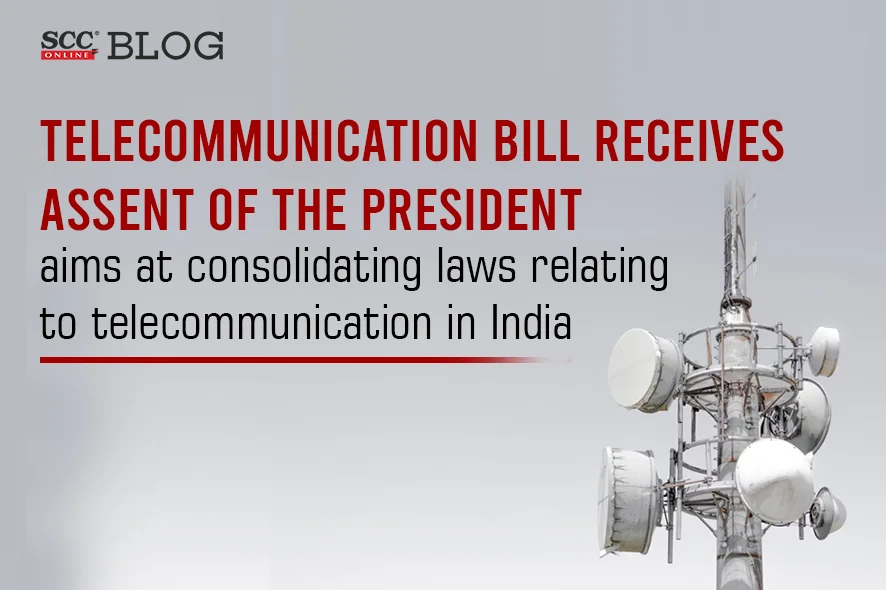On 24-12-2023, the Telecommunication Bill, 2023 received the assent of the President. The bill aims at strengthening the laws relating to telecommunication services and networks in India.
The Telecommunication Bill was introduced in Lok Sabha on 18-12-2023 and it was passed by Lok Sabha on 20-12-2023 and Rajya Sabha on 21-12-2023.
The Telegraph Act, 1885 (‘ITA’) and Wireless Telegraphy Act, 1933 (‘WTA’) (now repealed) have been the major Acts governing telecommunication field in India since its inception. The Telecommunication Act, 2023 seeks to replace these acts and provide India with better and updated laws.
Key highlights of the Telecommunication Act, 2023:
-
It provides Central Government with the power of authorisation and assignment to any person who intends to:
-
provide telecommunication services
-
establish and operate telecommunication network
-
possess radio apparatus
-
-
Biometric verification of the person made mandatory for the use of telecommunication services.
-
The spectrum for telecommunication will be assigned through auction, except for certain entries, for which administrative process will be used.
-
One spectrum can be assigned to one or more assignee other than primary assignee.
-
Facility provider must seek permissions for right to way of communication by any public entity.
-
Provisions for restoration and compensation by facility provider, if caused any damage.
-
Facility provider will not have right over the property but only the ‘right to use’ of the property.
-
For deficiency in service, District Magistrate shall hear the matter and compensation will be decided by the District Court under whose jurisdiction the property is situated.
-
Central Government may notify the standards in respect of:
-
telecommunication equipments and networks
-
telecommunication services
-
manufacturing and distribution of equipments
-
telecommunication security
-
cyber security
-
encryption and data protection
-
-
Central Government can take temporary control over the telecommunication equipments and networks to maintain public safety and national security.
-
The Universal Service Obligation Fund created under the ITA,1885 is now to be called Digital Bharat Nidhi.
-
Regulatory sandboxes will be created to facilitate and encourage new innovations and developments in telecommunication.
-
Online dispute resolution mechanism is emphasized for disposal of complaints and protect the rights of the users.
-
Committees and Tribunals are formed at various levels to resolve matters relating to telecommunication.
-
This law is applicable outside India if the offence includes telecommunication service based in India or the equipment used was manufactured in India.
-
The Central Government by notification amend first, second or third schedule provided that penalty should not exceed 10 crore rupees.







